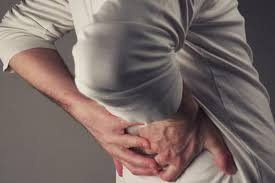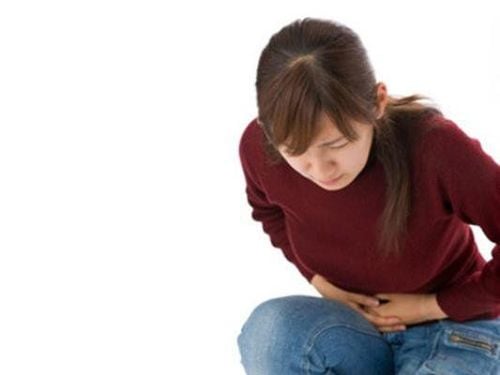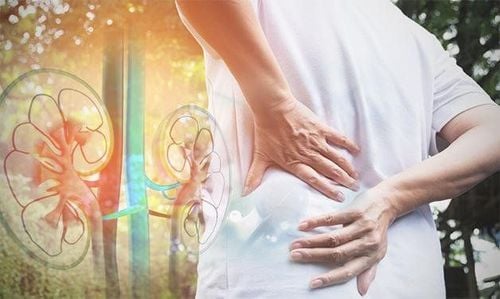This is an automatically translated article.
Ureteral smooth muscle relaxant is used to relax smooth muscle, relieve pain in patients with ureteral stones to help the stone move out easily. The following article tells us when using ureteral smooth muscle relaxants.1. An overview of ureteral smooth muscle relaxants
Your kidneys make urine by filtering waste and excess water from your blood. Urine travels from the kidneys to the bladder in two thin tubes called ureters.
The ureter is about 25 to 30cm long. The muscles in the wall of the ureter contract and relax to push urine down and out of the kidney. A small amount of urine flows from the ureters into the bladder about every 10 to 15 seconds.
Sometimes the ureter can be blocked or injured. This can block the flow of urine to the bladder. If urine collects or flows back up into the ureters, you may have a urinary tract infection.
Doctors diagnose problems with the ureters using different tests. These include urinalysis, X-rays, and examination of the ureters with a tube called a cystoscope. Treatment depends on the cause of the problem. It may include medication and, in severe cases, surgery.
2. Action of ureteral smooth muscle relaxant
There are 3 types of muscles in our body: cardiac muscle, skeletal muscle, and smooth muscle.Smooth muscle also called involuntary muscle, muscle without diagonal stripes under microscope magnification. It consists of narrow axial cells with a single nucleus located in the center. Smooth muscle tissue, unlike skeletal muscle, contracts slowly and automatically. It forms the bulk of the muscles of the internal organs and the digestive system. The smooth muscle in the ureter is constricted, which impedes the excretion of urine and stones.
Ureteral muscle relaxants are drugs for the treatment of patients with urinary tract and ureteral stones. They have the effect of dilating the ureter, reducing the rate and intensity of contraction of the ureteral smooth muscle, thereby helping the patient to relieve pain.
When using ureteral smooth muscle relaxants, special care should be taken because the drug can alleviate the symptoms of the disease. Make the disease worse or the body's reactions appear.
3. Urinary smooth muscle relaxants
There are many types of ureteral smooth muscle relaxants, but the most commonly used are the drugs: drotaverin and alverin
3.1. Ureteral smooth muscle relaxer Drotaverin Drotaverin is available in two dosage forms: oral and injectable.
Oral form will be completely absorbed after taking the drug. The injectable form will take effect 2 to 5 minutes after injection, up to 20 to 30 minutes after injection.
Drugs to treat ureteral stones are used to reduce the pain in the kidneys caused by stones, the spasms in the urinary tract due to stones also reduce contraction due to inflammation, stagnant urine cannot be excreted. outside.
Side effects of the drug: Nausea, vomiting, dry mouth, dizziness (feeling lightheaded). There are occasional cases of low blood pressure in the case of injectable drugs. Therefore, when injecting, it is necessary to inject slowly.
3.2. Alverin ureteral smooth muscle relaxant Alverin is an antispasmodic drug. It relaxes the ureteral smooth muscles. This helps stop the pain you feel when the muscles become tense.
Also Alverine is used to help people with irritable bowel syndrome (IBS). Some of the symptoms of IBS are: abdominal pain like cramps, diarrhea, constipation. Sometimes these symptoms are worse if you are anxious or stressed. It is also used to relieve pain caused by menstruation.
Alverin side effects and see your doctor as soon as possible if you notice:
Shortness of breath, shortness of breath, wheezing, swelling of the face or other parts of the body, because of severe allergic reactions have been known to occur Yellowing of the whites of the eyes and skin, due to hepatitis is known to have occurred. Tell your doctor or pharmacist if any of the following side effects occur or get worse.
4. What are the best home treatments for ureters?
Home remedies for ureteral treatment are not only a good idea but also essential for removing or preventing kidney stones.
4.1. Drink Water The most essential treatment to reduce kidney stones and prevent kidney stones is to drink plenty of water. Drinking plenty of water through the urinary tract is the only way to eliminate kidney stones and is a highly effective way to prevent kidney stones.
4.2. Eat diuretic foods If you haven't been prescribed a diuretic to help clear your kidney stones, consider eating a diet high in diuretic foods like celery, asparagus, parsley, cranberries, or watermelon.
4.3. Avoid certain foods An oxalate-rich diet contributes to calcium oxalate kidney stone formation. To prevent kidney stones, avoid foods rich in oxalates like spinach, potatoes, nuts, beets, rhubarb, and bran. You should also reduce your intake of salt and animal protein.
4.4. Don't abuse calcium supplements Although calcium stones are the most common type of kidney stones, it is not true that reducing calcium intake will help eliminate or prevent kidney stones. Conversely, a diet lacking in calcium can cause kidney stones. But don't abuse calcium. High calcium in the body can cause much more serious problems than kidney stones, so calcium supplements should only be taken if advised by your healthcare provider. Generally, it is recommended to consume 1000-1200mg of elemental calcium per day.
5. Special attention when using ureteral smooth muscle relaxants
Some smooth muscle relaxants can make the patient addicted to use. Therefore, patients should not self-medicate without a doctor's prescription.
This is a group of drugs that act on the central nervous system, so if used in excess, it will lead to hallucinations and shock.
The drug acts directly on the central nervous system, making it difficult for you to concentrate on work, causing drowsiness.
Do not use drugs with stimulants such as drinking alcohol, smoking.
People with advanced age background such as hypertension, diabetes, heart failure, liver failure, kidney failure need to see a doctor.
6. Advice for patients with ureteral stones
Regular exercise helps stretch muscles so they are less prone to spasms, tears and sprains. Light exercises like jogging and walking are helpful for stretching. Massage can also be helpful. Avoid wearing tight clothing, instead, wear loose clothing. Get enough rest, get plenty of sleep. To avoid developing pressure sores, change your position at least every two hours. Hot or cold therapy can help treat muscle spasms. Apply an ice pack or heat pack to the muscle for 15-20 minutes. Stay hydrated, drink plenty of water.
Please dial HOTLINE for more information or register for an appointment HERE. Download MyVinmec app to make appointments faster and to manage your bookings easily.













